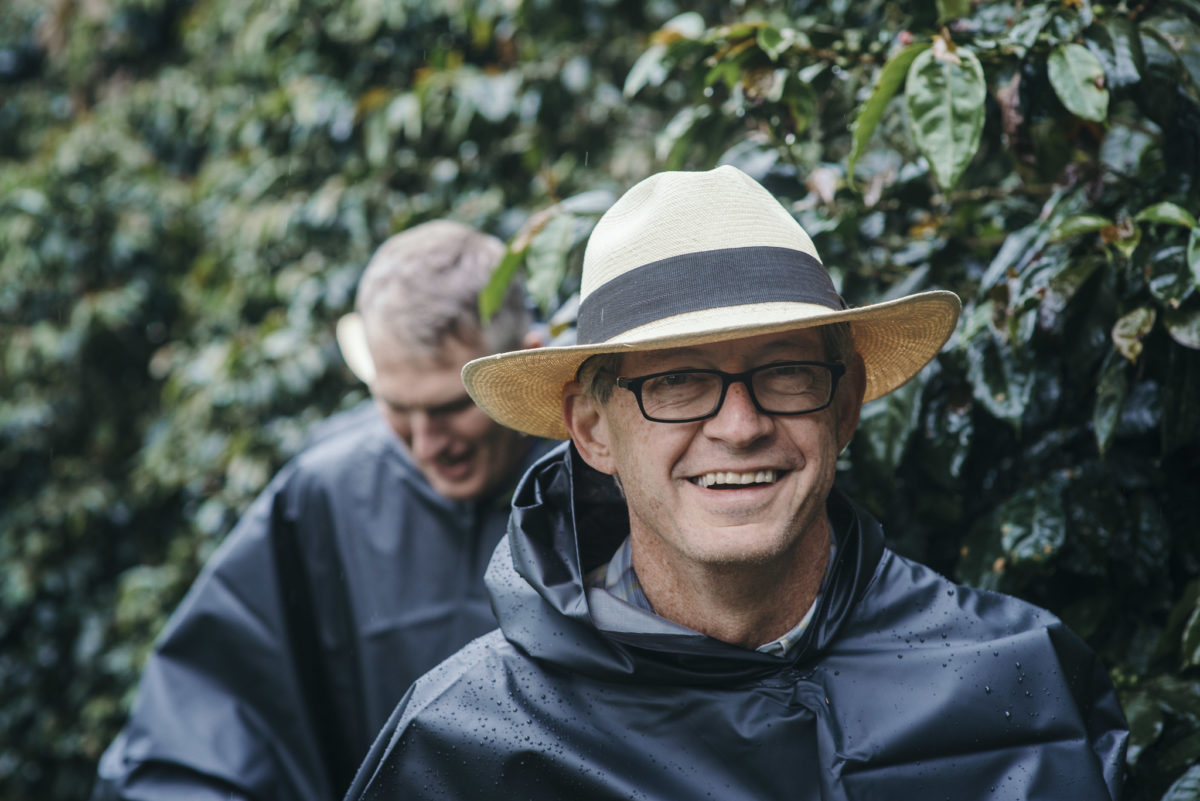In 1986 a 24-year-old from Ohio named Daniel Katz set out to save tropical rainforests by creating a way for consumers to directly support more eco-conscious approaches to producing products from forests. With four others, he co-founded the Rainforest Alliance to develop a global certification standard for forest products and crops, which he hoped would create a direct financial incentive for producers to shift away from damaging business-as-usual practices, while also creating livelihoods or other opportunities for local communities living in and around forests.
Rainforest Alliance went on to have a transformative impact on the sustainability sector, pushing eco-certification into the mainstream, prompting companies to rethink how they engage with local forest communities and environmentalists, and catalyzing global awareness about tropical deforestation. One sign of the Rainforest Alliance’s success is the ubiquity of the organization’s frog logo, which has become a globally-recognized symbol of eco-certification across products and services ranging from coffee to tourism.
“The Rainforest Alliance pioneered independent third-party certification as a way to drive sustainability transformation,” Katz told Mongabay during a recent interview. “Back in the early days, we used to say certification was ‘so practical, it’s radical’ because it really was groundbreaking: connecting farmers with companies committed to responsible sourcing and consumers who want to make better choices. Today, more than two million farmers follow the Rainforest Alliance’s agriculture standards in 70 countries and many millions more look for the green frog seal on the supermarket shelf.”
“But farm-level certification is just one tool in our toolbox—and over the years we’ve learned that this tool works best when used in combination with landscape-wide programs and local-to-global advocacy efforts. At the same time, we also see that certification must evolve. I love that the Rainforest Alliance decided to reimagine certification as we know it, publishing in 2020 a whole new set of strengthened standards that better address the problems of today.”

Katz transitioned out of an operational role at the Rainforest Alliance in 2000 but continues to serve as the Chairman of the organization’s board. He is also currently the Senior Program Director at the Overbrook Foundation, where he oversees grantmaking on sustainability, conservation, and environmental justice.
Beyond those roles, Katz has served as an adviser and board member to a number of organizations, from the environmental media outlet Grist to People for the American Way.
With a background spanning entrepreneurship, business, philanthropy, and civil society, Katz has a unique vantage point on the evolution of efforts to conserve biodiversity over the past three-and-a-half decades. Speaking with Mongabay, Katz called out two significant changes since he started the Rainforest Alliance in the mid-1980s: big organizations recognizing the need to partner with local and Indigenous communities and rising awareness about sustainability.
“It is amazing how much the global public knows about the need to stop deforestation and the climate crisis,” he told Mongabay. “Our problem is that the implementation of solutions has not kept pace with awareness.”

Katz pointed to several reasons why the world has been slow to close this gap.
One is infighting within the conservation sector.
“We need more collaborative action; I still see too much bickering between organizations,” he said. “Personally, I would like to see the larger organizations—who are often better at raising money—sharing resources with the smaller and more nimble organizations, who are better primed to deliver impactful results.”
Another is lack of transparency.
“Some groups need to be more authentic and effective,” he continued. “We need more transparency so that impact and effectiveness can be better understood. It is ok to fail and start again, but we should share those learnings, not be afraid of them.”

Katz also cited issues in sectors adjacent to conservation itself, including philanthropy and the hesitancy of companies to embrace meaningful change.
“Philanthropy… is part of the problem. We create insane competition because everyone is fighting for the same money—and it’s still more about who you know, just like it was in the 1980s,” he said. “Small organizations are out there doing incredible work but can’t reach donors. We need to disrupt the system so great ideas, not great handshakes, rise to the top.”
“My experiences with most international CEOs are that they want to make changes and want to be outspoken leaders, but they are afraid to stick their necks out in case they are hit with criticism for not doing enough. We can’t not act because of this.”

Beyond his work in philanthropy and conservation, Katz has a business degree and is a formally trained executive coach. So he has some insight for people aspiring to turn ideas into solutions.
“My advice for groups getting started today would be to truly understand the hard-core facts of the problem you’re trying to solve and then weave together a compelling narrative about how your work will make a positive difference. Do not embellish and know the details. And you can’t go it alone,” he said.
“When I was 24 and started the Rainforest Alliance, I was certain that one day we would close down the shop because our job would be done; the rainforests would be conserved,” he said.
“We in the Global North are the primary source of the problem and it is up to us to lead on solutions, even if that means we need to become uncomfortable. Change is coming whether we like it or not. The more we can get out in front of it, the less painful it is likely to be.”
Katz spoke about these issues and much more during an exchange with Mongabay founder and CEO Rhett A. Butler.


